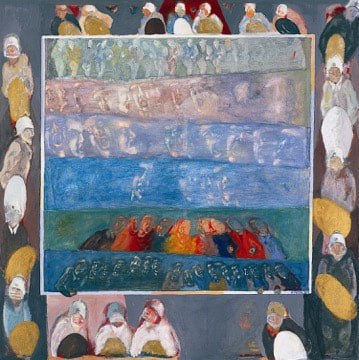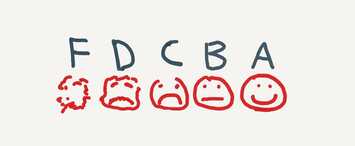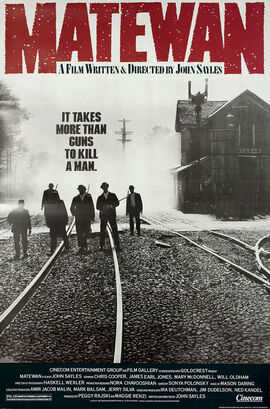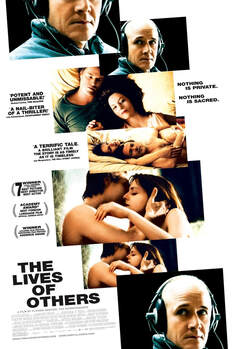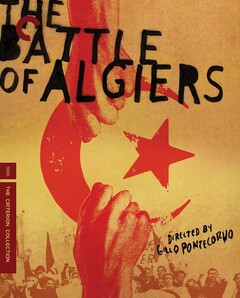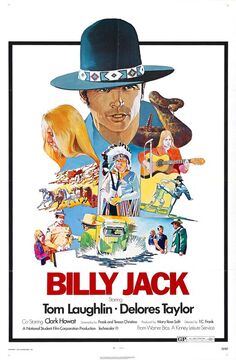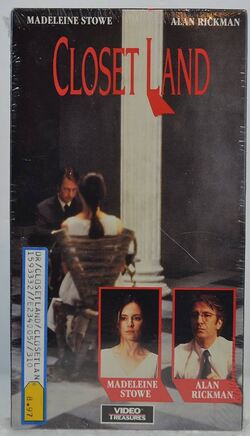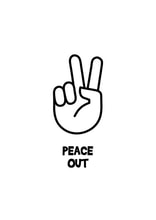Syllabus to The Arts of Domination and Resistance
Professors Christian Davenport and Dan Slater
Note: The class is a co-evolutionary experience and thus we will add/change content as our interaction changes/grows
What is the course, when does it meet and where?
Course Number: 489 - 005
Time: Wednesday, 9am-12pm
Room: G378 DENT, 1011 North University Ave
Time: Wednesday, 9am-12pm
Room: G378 DENT, 1011 North University Ave
Who are the instructors?

Christian Davenport
Professor for the Study of Human Understanding and Political Science, Public Policy (Courtesy) – University of Michigan Contact: [email protected] Office Hours: Tuesdays 1-3pm, 4448 ISR Webpage: https://christiandavenportphd.weebly.com/ |

Dan Slater
James Orin Murfin Professor of Political Science; Director, Center for Emerging Democracies – University of Michigan Contact: [email protected] Office Hours: Wednesdays 1-3pm, 6757 Haven Hall Webpage: lsa.umich.edu/polisci/people/faculty/dnsltr.html |
What is the class about (i.e., what is the "Course Description")?
Domination by those in power and resistance from those attempting to overthrow or even just survive that domination are global and ancient phenomena. These do not only take place through physical clashes between the dominant and subordinate. They also exist in more hidden domains, such as within people's minds, emotions, and private conversations; and in less material domains, like the production of art, culture, fiction, film, and symbols. This course considers the wide array of meanings that domination and resistance assume, and the many ways that domination and resistance play out. In brief, the course is about both blatant and subtle forms of human subjugation, and about both individual and collective pursuits of human freedom and dignity.
The main inspiration for this course comes from the life’s work of our mutual friend and mentor, James Scott. One of his most famous books is entitled Domination and the Arts of Resistance. This course commences from the starting point that there are “arts” (creative as well as intelligent ways) to dominate as well as to resist, and with the wager that the better we understand one, the more fully we will understand the other.
The main inspiration for this course comes from the life’s work of our mutual friend and mentor, James Scott. One of his most famous books is entitled Domination and the Arts of Resistance. This course commences from the starting point that there are “arts” (creative as well as intelligent ways) to dominate as well as to resist, and with the wager that the better we understand one, the more fully we will understand the other.
Motivation
"To remember history is not for the sake of keeping alive the memories of old tyrannies, but to recognize present tyranny, for those patterns are in us still.” — Doris Lessing
Credo
We are in this class to learn about how we can (and maybe cannot) improve our world by engaging in active citizenship
Attendance
Show up, learn, contribute, converse
Addressing the Professors
We both answer to our first names as well as to “Professor” or “Doctor.” Since we are in the positions of power in the classroom, we want you to be able to address us however makes you most comfortable. We should be, and we are, comfortable either way.
But a caveat: you might take a moment to reflect on why you feel more comfortable addressing your professors more formally or informally. If you prefer informality, might that reflect privileges you have enjoyed that other students in the classroom may have not? If formality, could that be because you feel you have more to prove than other students as a result of your background? Or might power and privilege be shaping your comfort level in some entirely different way?
So as an experiment, you might consider addressing us in the form that makes you uncomfortable, at least for starters, and seeing what that might reveal about power and privilege in the classroom.
But a caveat: you might take a moment to reflect on why you feel more comfortable addressing your professors more formally or informally. If you prefer informality, might that reflect privileges you have enjoyed that other students in the classroom may have not? If formality, could that be because you feel you have more to prove than other students as a result of your background? Or might power and privilege be shaping your comfort level in some entirely different way?
So as an experiment, you might consider addressing us in the form that makes you uncomfortable, at least for starters, and seeing what that might reveal about power and privilege in the classroom.
Participation: 30%
- format and date to be determined
- contributing to classroom discussion through informed commentary/reflection about reading and/or prior discussion
- one formal test
- if test is missed and there is no University sanctioned excuse, then the student will be issued a “0” for the assignment.
- if test is missed and there is a University sanctioned excuse, then the student will be given a make-up examination.
- format and date to be determined
All we will be reading are articles and chapters. Most are available via the library or will be provided by the instructors. There is no Canvas page. Those who can search and find are less likely to be dominated.
How to read:
How to read:
- This is no history class so you need not know and remember every single detail
- You should be able to understand
- the concepts involved
- the question being asked
- the theory offered to explain it
- the quality (i.e., validity of the source, and amount of evidence brought to bear to test the theoretical argument and
- the conclusion drawn from the evidence
- the concepts involved
- You should be able to offer a critical reaction to the readings, grounded in your own experience and logic
Other matter
Inclusivity Statement: Members of the UM and LSA community represent a rich variety of backgrounds and perspectives. We are committed to providing an atmosphere for learning that respects diversity. While working together to build this community we ask all members to:
Student Mental Health and Well-Being Resources: The University of Michigan is committed to advancing the mental health and wellbeing of its students. We acknowledge that a variety of issues, such as strained relationships, increased anxiety, alcohol/drug problems, and depression, directly impact students’ academic performance. If you or someone you know is feeling overwhelmed, depressed, and/or in need of support, services are available. For help, contact Counseling and Psychological Services (CAPS) and/or University Health Service (UHS). For a listing of other mental health resources available on and off campus, visit: https://uhs.umich.edu/stressresources
Communication: During this semester, the best way to communicate with us is via office hours and email. Regarding the latter, we will try to respond with 2-3 days. To facilitate us seeing your email, please use the phrase “I am in your class” in the subject line. We search for this phrase and it is prioritized in our email accounts. If you do not use this phrase, then it is possible that we will not see your email.
- share their unique experiences, values and beliefs
- be open to the views of others
- honor the uniqueness of their colleagues
- appreciate the opportunity that we have to learn from each other in this community
- value one another’s opinions and communicate in a respectful manner
- keep confidential discussions that the community has of a personal (or professional) nature
- use this opportunity together to discuss ways in which we can create an inclusive environment in Ford classes and across the UM community
Student Mental Health and Well-Being Resources: The University of Michigan is committed to advancing the mental health and wellbeing of its students. We acknowledge that a variety of issues, such as strained relationships, increased anxiety, alcohol/drug problems, and depression, directly impact students’ academic performance. If you or someone you know is feeling overwhelmed, depressed, and/or in need of support, services are available. For help, contact Counseling and Psychological Services (CAPS) and/or University Health Service (UHS). For a listing of other mental health resources available on and off campus, visit: https://uhs.umich.edu/stressresources
Communication: During this semester, the best way to communicate with us is via office hours and email. Regarding the latter, we will try to respond with 2-3 days. To facilitate us seeing your email, please use the phrase “I am in your class” in the subject line. We search for this phrase and it is prioritized in our email accounts. If you do not use this phrase, then it is possible that we will not see your email.
January 10
Intro
Davenport and Slater On Point - The Way Forward
January 17
Conceptual starting points
Movie #1: Matewan
Intro
Davenport and Slater On Point - The Way Forward
January 17
Conceptual starting points
- Davenport On Point
- Charles Tilly: “ Domination, Resistance, Compliance… Discourse”. Sociological Forum 6(3): 593-601. 1991.
- Christian Davenport. "Performing order: an examination of the seemingly impossible task of subjugating large numbers of people, everywhere, all of the time." The Many Hands of the State: Theorizing Political Authority and Social Control. Cambridge University Press, Cambridge: 258-283. 2017.
- Slater On Point
- James Scott, Domination and the Arts of Resistance: Hidden Transcripts. Yale University Press, New Haven: 1 - 17. 1990.
- John Gaventa, Power and Powerlessness: Quiescence and Rebellion in an Appalachian Valley.* University of Illinois Press, Chicago: 3 - 44.* 1982.
Movie #1: Matewan
January 24
Political order and coercion
Movie #2: The Lives of Others
Political order and coercion
- Slater On Point
- Charles Tilly, "War Making and State Making as Organized Crime"; Bringing the State Back In - Peter Evans, Dietrich Rueschemeyer and Theda Skocpol. Cambridge University Press, Cambridge: 169 - 191. 2010.
- Dan Slater, Ordering Power: Contentious Politics and Authoritarian Leviathans in Southeast Asia. Cambridge University Press, Cambridge: 3 - 52. 2010.
- Davenport On Point
- Ted Robert Gurr. "War, revolution, and the growth of the coercive state." Comparative political studies 21(1): 45 - 65. 1988.
- Harry Eckstein. Authority Patterns: A Structural Basis for Political Inquiry. American Political Science Review 67(4): 1142-1161. 1973.
Movie #2: The Lives of Others
January 31
Thinking about resistance
Movie #3: The Battle of Algiers
Thinking about resistance
- Davenport On Point
- Glenn Burgess. “On Hobbesian Resistance Theory”. Political Studies (1994) 42(1): 62-83
- Christian Davenport and David Armstrong. “From Motionless to Molotovs: Understanding Everyday Resistance to Police Action. Manuscript. Tables 2 and 3 (if curious).
- Charles Tilly. "Claims-making and Targeting" Figure (Regular to Revolutionaries). In Class.
- Slater On Point
- Frantz Fanon, Wretched of the Earth. Grove Press, New York (2004): 1 - 62.
- Albert Hirschman, Exit, Voice, and Loyalty: Responses to Decline in Firms, Organizations and States. Harvard University Press, Cambridge (2018): 106 - 126
Movie #3: The Battle of Algiers
February 7
No new readings: Catch-up session
February 14
Violence and non-violence
No new readings: Catch-up session
February 14
Violence and non-violence
- Davenport on Point
- Gene Sharp. "The meanings of Non-Violence: A Typology (revised). Journal of Conflict Resolution (1959): 41-64.
- Sharon Nepstad. "Nonviolent Resistant Research". Mobilization 20(4): 415-426. 2015.
- Erica Chenoweth. "The Future of Nonviolent Resistance" Journal of Democracy 69-84. 2020
- Slater on Point
- Mohandas Gandhi, “Hind Swaraj,” pp. 72-99: hindswaraj.pdf
- Mohandas Gandhi, “Quit India Speech,” pp. 1-2: quit_india_speech.pdf
- Subhas Chandra Bose, Selected Speeches, pp. 1-7: subhas_bose_speeches.doc
- Mao Zedong, “Refutation of the Theory of National Subjugation” and “Compromise or Resistance? Corruption or Progress,” pp. 199-205: mao1.pdf; mao2.pdf
February 21
Digital/Surveillance
- Slater On Point
- Jeremy Boo and Dan Slater, “The Digitization of Dictatorship,” Turkish Policy Quarterly, pp. 19-29: the_digitization_of_dictatorship__early_lessons_from_a_growing_literature.pdf
- Marcus Michaelson, “Exit and Voice in a Digital Age,” Globalizations, pp. 248-261: exit_and_voice_in_a_digital_age__iran_s_exiled_activists_and_the_authoritarian_state.pdf
- Davenport on Point
- Earl, Jennifer, Thomas V. Maher, and Jennifer Pan. 2022. "The digital repression of social movements, protest, and activism: A synthetic review." Science Advances 8(10): 1-15.
- Davenport, Christian. 2005. "Understanding covert repressive action: The case of the US government against the Republic of New Africa." Journal of Conflict Resolution 49(1): 120-140.
Movie #5: Closet Land
Reading assignments hereafter not yet determined
March 13
Outcomes
March 13
Outcomes
- Davenport On Point
- Slater On Point
March 20 [James Gibson visitation]
Puzzles
Puzzles
- Slater On Point
- Davenport On Point
March 27
Putting it all together
Putting it all together
- Davenport On Point
- James Scott Presentation slides.
April 3
Putting it all together
Putting it all together
- Slater On Point
April 10
Putting it all together
Putting it all together
- Davenport and Slater On Point
April 17
Project presentations and Outro
Project presentations and Outro
TBD
Final Project Submission
Final Project Submission
Resources
Coming Soon
